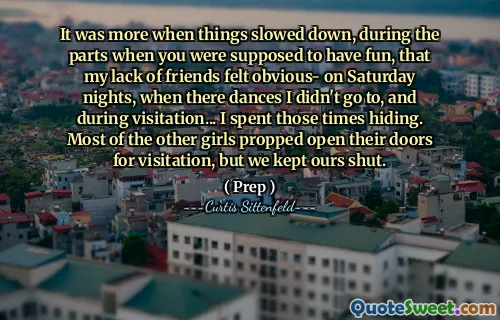I couldn't tell them about Cross, I thought. I couldn't tell them because Dede liked him and because she wouldn't believe or understand it, and I couldn't tell them because I myself was unsure what there was to believe or understand. It wasn't like he'd kissed me, or made any declarations. What could I claim? For years and years, I felt this way, not just about Cross but about other guys – if they didn't kiss you, it didn't mean anything. Their interest in you had been so negligible as, perhaps, to have all been in your head.
The speaker grapples with the complexity of their feelings towards a character named Cross, struggling to express these emotions to others. They are hesitant to share their feelings because they fear Dede, a friend, would not comprehend the nuances involved. The speaker is also unsure of their own emotions, feeling that without a physical expression, like a kiss, there might be nothing substantial to discuss. This uncertainty highlights the lingering doubts surrounding their interactions and the significance of unrequited feelings.
This internal conflict is a recurring theme for the speaker, who reflects on their past experiences with various boys. They question the legitimacy of their feelings, indicating that if there was no obvious sign of interest, such as a kiss, then those feelings might be entirely imagined. This self-doubt leads to a continuous cycle of confusion about relationships and the weight of unspoken emotions, ultimately creating a barrier to connecting with others on a deeper level.






